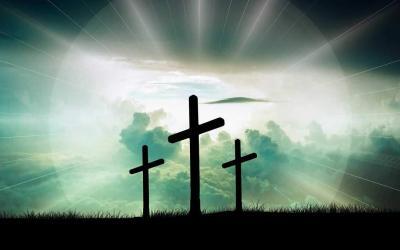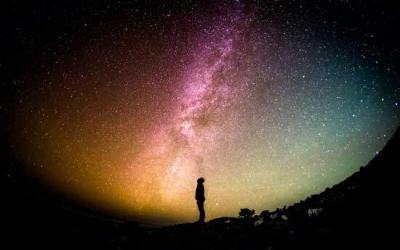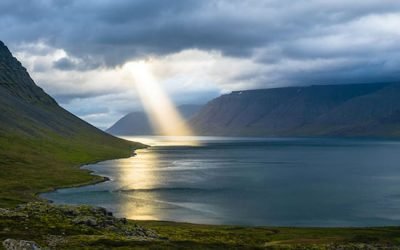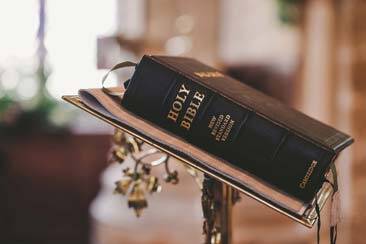Seventh-day Adventist, like other Christians, believe that after the second coming of Christ, God will cleanse our earth by fire and then restore it back to Eden-like perfection.
If you’ve had to say goodbye to a loved one, you know it’s not easy. We yearn to be with those we love. But that yearning reminds us of something else too.
We’ve been created for something more than this earth. According to the Bible, this world is not our final home. Rather, our forever home is one that God will create for us.
The Bible refers to this home of ours as the new heavens and the new earth (Revelation 21:1). There in the place we truly belong, we’ll live with God for eternity.
This post will cover:
- Bible prophecies about the new heavens and the new earth
- Why we need a new earth
- When the new earth will be made
- What it will look like
- Who will live there
We’ll start by reading the denomination’s official statement about our belief in the new earth:
“On the new earth, in which righteousness dwells, God will provide an eternal home for the redeemed and a perfect environment for everlasting life, love, joy, and learning in His presence.
For here God Himself will dwell with His people, and suffering and death will have passed away.
The great controversy will be ended, and sin will be no more. All things, animate and inanimate, will declare that God is love; and He shall reign forever.”
But this explanation only scratches the surface. Let’s get into what the Bible has to say.
What are Bible prophecies about the new heavens and new earth?
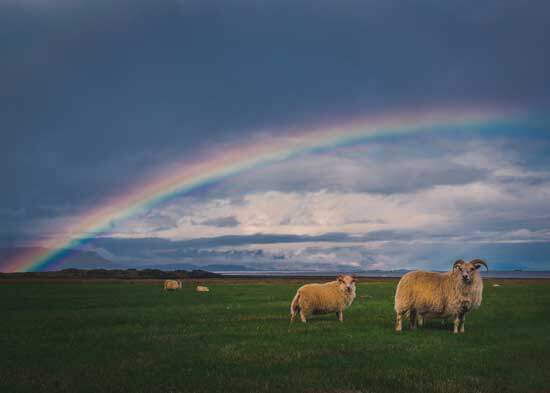
Photo by Cosmic Timetraveler on Unsplash
Both the Old Testament and New Testament reference the new earth. They are statements of prophecy and hope in God as the ultimate victor over evil.
Here are a few:
- “For behold, I create new heavens and a new earth; And the former shall not be remembered or come to mind” (Isaiah 65:17, NKJV).
- “‘For as the new heavens and the new earth, which I will make shall remain before Me,’ says the Lord, ‘So shall your descendants and your name remain’” (Isaiah 66:2, NKJV).
- “We, according to His promise, look for new heavens and a new earth in which righteousness dwells” (2 Peter 3:13, NKJV).
- “Now I saw a new heaven and a new earth, for the first heaven and the first earth had passed away. Also there was no more sea” (Revelation 21:1, NKJV).
These Scriptures assure us that a new earth is on the horizon—a place free from the negative effects of sin.
Why do we need a new earth?
A quick glance at the news reminds us that something is terribly wrong with the world we’re living in. Its main problem is sin—a word used to describe the breaking of God’s law of love (1 John 3:4). Thankfully, God has a way to deal with sin and with this sin-ridden earth so that we can live in a place of perfect harmony and beauty again.

Photo by Jordy Meow on Unsplash
In the beginning, God created a perfect earth. An earth without sin and death and suffering. He called it “very good” (Genesis 1:31, NKJV).
However, everything changed when Adam and Eve—the first people on Earth—chose to distrust God and believe Satan’s lies.
Even human nature changed.
So most of the Bible, from Genesis to Revelation, depicts the world as we know it—a place of suffering, death, violence, evil, and war.
The apostle Paul describes it this way:
“There is none righteous, no, not one; there is none who understands; there is none who seeks after God. They have all turned aside; They have together become unprofitable; there is none who does good, no, not one. Their throat is an open tomb; with their tongues they have practiced deceit; the poison of asps is under their lips; whose mouth is full of cursing and bitterness. Their feet are swift to shed blood; destruction and misery are in their ways; and the way of peace they have not known. There is no fear of God before their eyes” (Romans 3:10–12, NKJV).
Bloodshed? Misery? Destruction? Sounds a lot like the world today and throughout most of history.
But just as the opening chapters of the Bible depicted the world without sin or suffering, its closing chapters speak of an equally perfect world. Revelation 21 and 22 show God re-creating this earth from the ravages of thousands of years of sin.
And the good news is that it’s in our future!
When will the new earth be made?
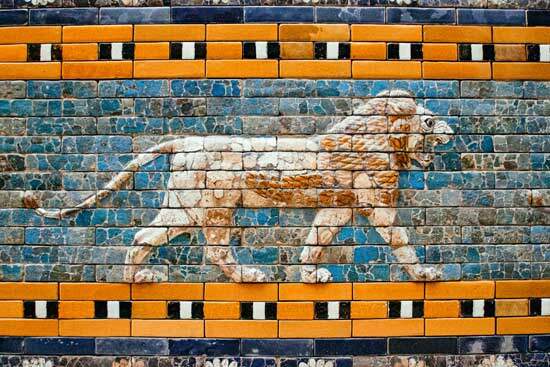
Photo by Girl with red hat on Unsplash
After all worldly kingdoms are done and gone, those who have chosen to follow God will “receive the kingdom” (Daniel 7:18, NKJV). This phrase is referring to when we will inherit the new earth after God has destroyed the current earth.
We’ll receive God’s eternal kingdom.
This verse is in the context of a vision that the prophet Daniel had about four great beasts.
One after another, the beasts fell, until a great judgment in heaven brought an end to them all (Daniel 7:1–16).
What did the vision mean?
The explanation was that “those great beasts…are four kings which arise out of the earth. But the saints of the Most High shall receive the kingdom, and possess the kingdom forever, even forever and ever” (Daniel 7:17–18, NKJV).
The four beasts represent successive kingdoms or empires in this world. They will all come to an end, after which God will set up His forever kingdom.
When will that end come?
Over and over, the Bible has promised it will come when Jesus Christ returns to the earth.1
At that time, the dead in Christ are resurrected and taken to heaven for a thousand years (1 Thessalonians 4:16; Revelation 20:4) during a period known as the millennium.
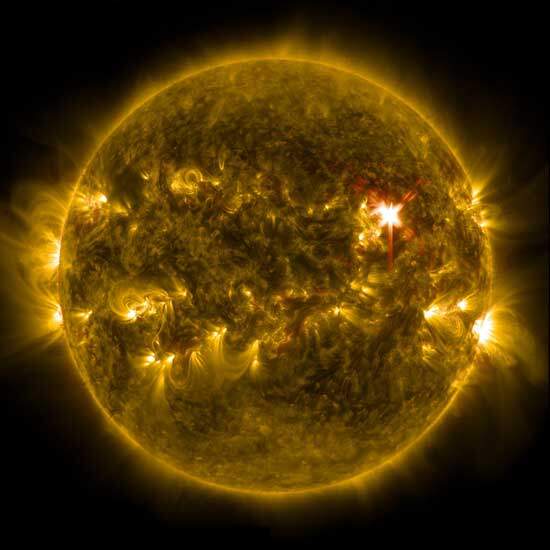
Photo by Pixabay
When these thousand years are over, sin, those who have chosen to deny God, and this sinful earth will be destroyed by fire from God after the final judgment (Revelation 20:9).
Peter the apostle tells us what will happen—and when:
“But the day of the Lord will come as a thief in the night, in which the heavens will pass away with a great noise, and the elements will melt with fervent heat; both the earth and the works that are in it will be burned up” (2 Peter 3:10, NKJV).
This earth will come to an end after Christ’s return and the millennium. That’s when everything on this evil earth will be destroyed.
And what comes after the destruction of the old earth?
“Nevertheless we, according to His promise, look for new heavens and a new earth in which righteousness dwells” (2 Peter 3:13, NKJV).
A new earth—our eternal home.
After all, didn’t Jesus say “the meek . . . shall inherit the earth?” (Matthew 5:5, NKJV).
Yes, they’ll inherit it. Not the old, decaying one but the new one “in which righteousness dwells” (Isaiah 51:6, NKJV).
What will the new earth be like?
The new earth will be a restoration of what God created it to be in the beginning—perfection. The fact that it is called a new earth reveals some kind of continuity with the old earth. But we will no longer have to deal with the effects of sin!
When God originally made this world, He gave humans free will.
Unfortunately, humans used their freedom to bring sin and suffering here. And this is the reality we all know so well. We have to constantly choose between good and evil every day.
The good news is that even before this world existed, God had a plan to deal with sin. He knew what could happen (2 Timothy 1:9; Titus 1:2).
In His plan, Jesus would come to this earth and bear the sins of the whole world Himself, taking the penalty of breaking God’s law.
This was the only way we could have the promise of eternal life—the life that we were supposed to have had from the start.
So in a sense, the new earth is also what we were supposed to have.
Look at this description of it in the book of Revelation:
“Now I saw a new heaven and a new earth, for the first heaven and the first earth had passed away. Also there was no more sea.
“Then I, John, saw the holy city, New Jerusalem, coming down out of heaven from God, prepared as a bride adorned for her husband.
“And I heard a loud voice from heaven saying, ‘Behold, the tabernacle of God is with men, and He will dwell with them, and they shall be His people.
God Himself will be with them and be their God. And God will wipe away every tear from their eyes; there shall be no more death, nor sorrow, nor crying. There shall be no more pain, for the former things have passed away’” (Revelation 21:1–4, NKJV).

Photo by Priscilla Du Preez on Unsplash
No more death, sorrow, nor crying?
In other words, the promise of “eternal life” or “everlasting life” mentioned in the New Testament isn’t about life happening on the earth as it is now.2
Who’d want that, anyway? To live forever in this world of hurt and pain?
In place of these effects of sin that separate us from God, we’ll be reunited with Him for an incredible existence. Here are some hints about what that life will be like:
- The new earth will be like a cheerful garden (Isaiah 35:1–2).
- We won’t have any disabilities (Isaiah 35:5).
- All the animals will be tame and gentle (Isaiah 35:8–9; 65:24–25).
- We’ll build houses and plant vineyards (Isaiah 65:21).
- We’ll be able to spend time with God face to face (Revelation 22:3–4).
The Bible also describes the capital of this new earth—the New Jerusalem.
The New Jerusalem
The New Jerusalem is central to the setup of the new earth. Just as God lived among His people in the old Jerusalem, He will do the same in the new one.
Revelation 21:10–22:5 gives a startling picture of what this city will be like.
Here are just a few snippets:
- It will be constructed of all kinds of precious stones (Revelation 21:10–11, 18–19).
- Its gates will be made of giant pearls, and its streets will be made of gold so pure that it’s transparent (Revelation 21:21).
- God’s throne will be there (Revelation 22:3–4).
- The river of life will flow from the throne (Revelation 22:1).
- The city won’t have nighttime and won’t need light or sunshine because God will be its light (Revelation 22:5).
However hard all this may be to grasp now, what’s important to remember is that this is a real place with real people.
It will not be some ethereal realm where we float around without physical bodies.
The first heaven and first earth were physical places. And the new ones will be as well—a new earth with people who have new immortal bodies (1 Corinthians 15:53–55).
Who will live on the new earth?
God’s people—all those who have accepted the sacrifice of Jesus in their place—will get to live in the new earth. Revelation speaks of these individuals as “those who are written in the Lamb’s Book of Life” (Revelation 21:27, NKJV).
But not everyone will make that decision.
Though the death of Jesus is sufficient to cover each and everyone’s sins, some people will reject it and have to face the consequences of their actions.
They’ll be destroyed at the end of the millennium by fire together with Satan.
That’s why the Bible records that “the cowardly, unbelieving, abominable, murderers, sexually immoral, sorcerers, idolaters, and all liars shall have their part in the lake which burns with fire and brimstone, which is the second death” (Revelation 21:8, NKJV).
It seems that this thought would fill God’s people with sorrow. Let’s keep reading and look at God’s plan.
How will God’s people deal with realizing that some people they know aren’t in the new earth?

Photo by Susan Q Yin on Unsplash
God has a plan that will allow His people to see His fairness in destroying sinners at the end. During the millennium, they will have a chance to go over the records of all who have chosen not to follow God (Revelation 20:4).
They’ll see how God dealt with them, and how they refused to accept God’s love and mercy (1 Corinthians 6:2, 3; 2 Peter 2:4; Jude 6).
Then they’ll acknowledge:
“Just and true are Your ways, O King of the saints! Who shall not fear You, O Lord, and glorify Your name? For You alone are holy. For all nations shall come and worship before You, for Your judgments have been manifested” (Revelation 15:3–4, NKJV).
But even after knowing how just and fair God is—isn’t it still going to hurt?
Of course it’ll hurt. During the millennium, they’ll mourn over those who won’t share in this eternal gift with them.
But the Bible says that “God will wipe away every tear from their eyes; there shall be no more death, nor sorrow, nor crying. There shall be no more pain, for the former things have passed away” (Revelation 21:4, NKJV).
The time of mourning will pass, and God’s people will live forever with Jesus in this new earth.
In fact, the only reminder of the old earth will be the marks on Jesus’ hands, feet, and side—the marks of the scars He received when He was nailed on the cross and pierced.3

Photo by KEEM IBARRA on Unsplash
Seventh-day Adventist leader and author Ellen White describes it this way:
“One reminder alone remains: our Redeemer will ever bear the marks of His crucifixion. Upon His wounded head, upon His side, His hands and feet, are the only traces of the cruel work that sin has wrought.… And the tokens of His humiliation are His highest honor; through the eternal ages the wounds of Calvary will show forth His praise, and declare His power.”4
A hope in the midst of today’s difficulties
Eternal life on the new earth is the ultimate reward of God’s people. They’ll be able to spend time with Him in a perfect world where sin won’t get in the way ever again.
As we go about our lives in this world, this prospect is our brightest hope.
Even as we face difficult things in this life, we can look beyond the here and now to our perfect home. Then, all the difficult things we’ve had to pass through will seem so small in comparison to the amazing new earth we’ll get to live on forever.
So, let this thought inspire you to keep your eyes focused on Jesus through whatever you’re facing. It’ll be worth it!
Related Articles
More Answers
What Adventists Believe about The Experience of Salvation?
The Seventh-day Adventist Church believes that salvation is a gift that anyone can receive through faith in Jesus Christ, the Son of God. When we accept His sacrificial death in our place, He saves us from the penalty and power of sin (or evil), which prevents us from experiencing true freedom.
What do Seventh-day Adventists Believe about the Life, Death, and Resurrection of Jesus?
Jesus Christ, a person who lived in first-century Palestine, is the foundation of the Adventist faith. This is because it’s only through the life, death, and resurrection of Jesus that any of us have hope of life beyond the toil, suffering, and death of this world.
What do Seventh-day Adventists Believe about The Great Controversy?
The “Great Controversy” is the phrase Seventh-day Adventists typically use to describe the cosmic spiritual conflict between the forces of good (God) and the forces of evil or sin (Satan/the devil).
What do Seventh-day Adventists Believe about Creation?
Seventh-day Adventists believe that God is the creator of our world. They come to this conclusion from the first book of the Bible—Genesis. The account there tells us that God took six literal days to form the earth and all it contains, including us humans.
What Do Seventh-day Adventists Believe about the Father?
Like most Protestant Christians, Seventh-day Adventists believe in God the Father as part of the Godhead. We call Him Father because of His role towards Jesus. Jesus Himself encouraged us to also call Him Father.
What do Seventh-day Adventists Believe about Sin and the Nature of Humanity?
Seventh-day Adventists believe that humanity was created perfect and that, at our very core, we crave this kind of perfection and unity with God. But unfortunately, the Bible teaches that we chose to be wise in our own eyes and disobey God, which led to a natural tendency to be sinful, evil, and selfish.
What Do Seventh-Day Adventists Believe about God the Holy Spirit?
Besides believing in the full divinity of God the Father and God the Son, Adventists also believe in the full divinity of God the Holy Spirit. This post will go over what the Bible says about the Holy Spirit. You’ll learn:
What Do Seventh-day Adventists Believe about God the Son?
Seventh-day Adventists believe that Jesus is fully God, being one of the members of the Trinity. And that He plays a central role in it as the Son of God.
What Seventh-day Adventists Believe about the Trinity
The Seventh-day Adventist Church believes in the doctrine of the Trinity, the three-in-one Godhead of Father, Son, and Holy Spirit. We believe that all three members of the Godhead are fully God, that they have different functions but are united in purpose.
What Seventh-day Adventists Believe about the Bible
The Bible forms the foundation for all that Seventh-day Adventists believe and teach. It reveals God to us and is our final authority on all issues relating to morals, doctrine, salvation, and the very nature and purpose of life itself (Isaiah 8:20).
How Important is a Weekly Sabbath as a Day of Rest?
Around the world, different religious groups have had a Sabbath—a day set apart for rest each week. A day to worship together, spend time with loved ones, and to just rest.
Why do Adventists Worship on Saturday?
Adventists worship on Saturday, because they acknowledge God’s call to worship on the seventh-day Sabbath, as described in the fourth commandment and other passages of Scripture. It’s a memorial of Creation and an acknowledgement of God as our loving Creator.
Didn’t find your answer? Ask us!
We understand your concern of having questions but not knowing who to ask—we’ve felt it ourselves. When you’re ready to learn more about Adventists, send us a question! We know a thing or two about Adventists.





